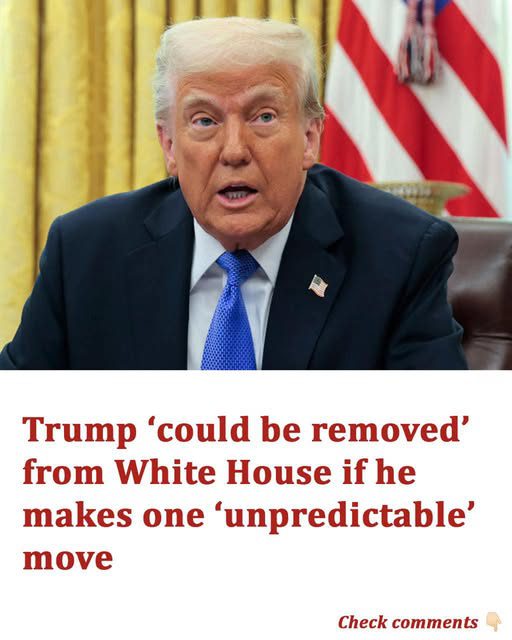Trump could be removed from White House if he makes one unpredictable move
Leaked messages from a private Signal group have plunged Donald Trump’s leadership into turmoil, sowing doubt among his closest advisers and exposing fractures within his administration. Fewer than one hundred days into his return to the White House, questions about stability swirl not only from the Democratic opposition but from the very team he assembled. Veteran analyst Adam Boulton warns that the greatest threat to Trump’s hold on power might come from his vice president, JD Vance, rather than from Capitol Hill. If Trump’s unpredictability—whether through sweeping tariffs that rattle allies or a sudden military gambit—begins to imperil Republican fortunes, party insiders may look to the family‑focused Vance as a steadier helm.
Since inauguration, Trump’s flurry of executive orders has unsettled even his most loyal backers. He has slapped tariffs on Canada and Mexico, renamed the Gulf of Mexico, paused aid to Ukraine, and initiated the deportation of Venezuelans to El Salvador. His sharp tone toward Greenland sparked fears of land grabs, and talk of unilateral strikes against the Houthis clashed with his demands that Europe shoulder more defense burdens. Each abrupt policy twist deepens the sense of unease among cabinet members who wonder whether Trump’s next decision will undermine America’s standing or drag the nation into conflict.
The Signal leak thrust JD Vance into the spotlight, revealing subtle critiques of Trump at a moment when Vance is both vice president and potential successor. Once a fierce critic—labeling Trump “America’s Hitler”—Vance has since become one of his most ardent champions. Yet messages sent to journalist Jeffrey Goldberg exposed Vance’s frustration with Trump’s conflicting positions, such as urging European partners to contribute more while demanding that the United States act alone to protect shipping lanes. “I don’t think the president realizes how contradictory this is with his message on Europe at the moment,” Vance wrote, casting a rare shadow over his loyalty.
As vice president, Vance occupies one of the nation’s most powerful offices and stands first in the line of succession. Some conservatives question his ideological consistency, while others view him as the pragmatic choice should Trump’s volatility become an existential threat to Republican unity. His transformation from outspoken critic to trusted lieutenant raises questions about how he would govern if the mantle of leadership fell to him.
These internal tensions emerge against a backdrop of broader concerns about American democracy. Political scientist Staffan Lindberg warns that under Trump, the United States appears to be drifting away from democratic norms, a shift with global repercussions. Former Republican communications director Tara Setmayer likens the moment to “Defcon 1 for our democracy,” lamenting that the media and opposition have failed to convey the gravity of the situation to the public. Incidents like the denial of entry to a French scientist over anti‑Trump text messages on his phone only deepen fears of eroding civil liberties.
Should discord within the White House reach a breaking point, Trump could face removal through impeachment—he survived two such attempts in his first term—or invocation of the 25th Amendment, requiring a majority of cabinet members and the vice president to declare him unfit. If contested, Congress could override his objections with a two‑thirds vote in both chambers. In an echo of Watergate, mounting pressure might even drive Trump to resign, though his mercurial nature makes that outcome hard to predict.
Even if Trump were replaced by Vance, there is no guarantee of a dramatic shift in direction. Many experts believe Vance’s close alignment with Trump suggests continuity rather than change. Yet as the administration hurtles through fresh scandals and strategic surprises, the real story may be the struggle for control behind closed doors. In the coming months, all eyes will be on JD Vance—whether as Trump’s loyal second‑in‑command or as the figure Republicans rally around when unpredictability becomes too great a risk.





